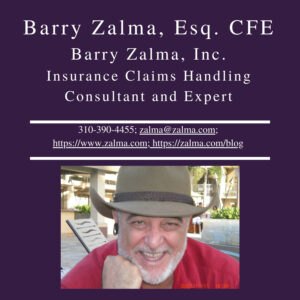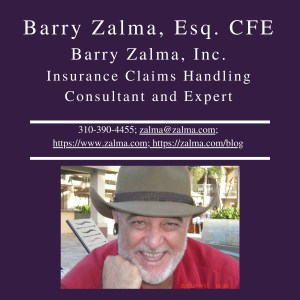Insurance Fraud Conviction Affirmed


In State of Utah v. Julio Ayala, No. 20170928-CA, 2022 UT App 1, Court of Appeals of Utah (January 6, 2022) the prosecution proved that Julio Ayala was involved in multiple automobile accidents while driving his truck and trailer. Ayala filed claims with several insurance companies, and those insurers paid for, among other things, numerous chiropractic treatments and property damage claims. Ayala later admitted to a private investigator that he had not been injured in the accidents but nonetheless believed he had a right to receive insurance benefits.
After Ayala was criminally charged, the case was tried without a jury and the court convicted Ayala on one count of a pattern of unlawful activity and one count of felony insurance fraud. Ayala appealed, claiming (1) that the trial court committed plain error when it convicted him based on insufficient evidence that his crime met the threshold for a third-degree felony and (2) that his counsel was ineffective for failing to call an expert witness to opine on interpretation errors in Ayala’s interview with the private investigator.
BACKGROUND
Between January 2010 and July 2012, Ayala was involved in five automobile accidents. In each accident, he was rear-ended by another vehicle. For three of those accidents-the first in January 2010, the second in December 2010, and the third in April 2012-Ayala filed claims with his insurance company, which in turn paid for chiropractic care for him and damage to his vehicle and trailer.
In March 2013, Ayala had another similar accident. When he again sought insurance benefits for alleged damage to his trailer, the insurance company sent a private investigator to interview him. Because Ayala speaks primarily Spanish, the private investigator provided an interpreter (Interpreter) to relay questions to Ayala and his attorney. Ayala’s attorney, who was present during the interview, spoke English and Spanish and interjected several times to aid in and clarify the interpretation of the questions the investigator asked Ayala.
During the interview, Ayala admitted that he had not been injured in any of the accidents. Ayala stated that his insurance coverage entitled him to chiropractic treatments following the accidents, even if he had not been injured. Ayala agreed with the private investigator that he had “received treatment for no reason” and added, “[S]ince I am covered because of my insurance and that’s my right.” At the end of the interview, Ayala affirmed that he had understood all the investigator’s questions.
A complaint was made with the Insurance Fraud Division of the Utah Insurance Department, and the State charged Ayala with one count of a pattern of unlawful activity and two counts of insurance fraud.
The trial court concluded that Ayala had filed claims for chiropractic treatment following the January 2010 accident, the December 2010 accident, and the April 2012 accident, despite the fact that he had not been injured in those accidents. The trial court also convicted Ayala on the felony insurance fraud count.
ANALYSIS
With regard to Counsel’s awareness of the interpretation issues, the court found the following on remand:
Counsel was aware of the deficiencies with the interpretation but believed he could rely on his own fluency in Spanish to address any of its problems through cross-examination rather than calling on an expert to testify.
Counsel believed that the testimonies from several chiropractors would objectively establish that Ayala was injured, and he considered the problems with the interpretation a “side-issue.”
In retrospect, Counsel wished he had called an expert to testify about issues with the interpretation.
About the testimonies of the two experts, the court made the following findings:
The two expert interpreters’ evaluations of the interview were based solely on the transcripts, and they did not listen to an audio recording of the interview.
The first expert interpreter “acknowledged that a good portion of language is non-verbal. Vocal tone, eye contact, body language, and gestures do not come across in written translation, and an interpreter sitting next to the individual for whom they are interpreting may more easily be able to determine if the individual is understanding the interpretation.”
The second expert interpreter conceded that “he [was] missing some context and nuances that [could] not be ascertained solely from reviewing the transcript.”
The expert interpreters pointed out some words in the interpretation that could have been substituted with more accurate terms. The first expert noted that for the English word “injury,” the Interpreter used Spanish language that typically refers “to hurt feelings or actual physical injury, depending On the context.”
The expert explained that it would have been more accurate to employ different Spanish language that is “commonly used to describe a more serious injury.”
The second expert interpreter noted that when Ayala talked about his “right” to receive insurance benefits, a more accurate interpretation would have conveyed that Ayala believed he was “deserving” of receiving the benefits.
Although the two expert interpreters “were credible” and their “expertise unquestioned[, ] . . . many of the objections to the quality of [the] interpretation were more technical than practical.”
The hearing testimony and report of the experts did not persuade the trial court that the interpretation was misunderstood by Ayala to any substantial degree, or that Ayala’s responses during the insurance investigation were so missperceived and misstated as to obscure their essential meaning.
Ayala asked the appellate court to conclude that the trial court wrongly convicted him of felony insurance fraud because the evidence did not show that he received at least $1,500 in fraudulent insurance benefits-the minimum threshold for a third-degree felony.
Contrary to the request, the appellate court concluded that the trial judge did not commit error, because there was evidence sufficient to show that Ayala received nearly $2,000 in insurance benefits in connection with his fraudulent insurance claim. Specifically, defense exhibit 5 (which Ayala produced at trial) included six claim forms for chiropractic treatments received from April 20 to May 18, 2012, in connection with the April 2012 accident and claim. Accordingly, there was sufficient evidence to support Ayala’s third-degree-felony conviction.
Ayala’s defense was not prejudiced by Counsel’s alleged deficient performance and the trial court found that Counsel was familiar with the facts of the case and was confident in his ability to cross-examine Interpreter on his own, and thus he would not need to hire an expert. Counsel’s cross-examination of Interpreter elicited the same information about the problematic aspects of the interpretation as would have been offered by the two experts. Thus, it is clear that the testimonies of the experts about the quality of interpretation-had they been included at trial-would not have had an impact on the proceeding’s outcome for the simple reason that their testimonies would have added nothing substantive to the testimony about the interpretation deficiencies Counsel elicited on his own.
Although it may be true that the interpretation was inelegant in that it suffered from certain deficiencies and a lack of nuance, any problems with it were not so profound as to undermine the appellate court’s confidence in the proceeding’s outcome.
Therefore, the court of appeals concluded that the trial court did not err in convicting Ayala of felony insurance fraud, because sufficient evidence was presented at trial that Ayala received more than $1,500 in insurance benefits in connection with the fraudulent claim related to that count.
Major insurance frauds are ignored by prosecutors. A $1500 to $2000 fraud was tried to a judge, the defendant was properly convicted and will be appropriately punished because he was ignorant enough, with his lawyer present, to tell an investigator that he was not injured in any of the accidents and received chiropractic treatment as – what he believed to be a right – even though there was no physical reason for the treatment. Taking this case up on appeal is an example of why states are loathe to bring insurance fraud cases to trial because of the expense of a trial and an appeal far exceed the amount taken in the fraud. However, if other states emulate Utah any prosecution and conviction will deter others from attempting fraud.
© 2022 – Barry Zalma
Barry Zalma, Esq., CFE, now limits his practice to service as an insurance consultant specializing in insurance coverage, insurance claims handling, insurance bad faith and insurance fraud almost equally for insurers and policyholders.
He also serves as an arbitrator or media tor for insurance related disputes. He practiced law in California for more than 44 years as an insurance coverage and claims handling lawyer and more than 54 years in the insurance business.
tor for insurance related disputes. He practiced law in California for more than 44 years as an insurance coverage and claims handling lawyer and more than 54 years in the insurance business.
Subscribe to “Zalma on Insurance” at https://zalmaoninsurance.locals.com/subscribe and “Excellence in Claims Handling” at https://barryzalma.substack.com/welcome.
You can contact Mr. Zalma at https://www.zalma.com, https://www.claimschool.com, zalma@claimschool.com and zalma@zalma.com . Mr. Zalma is the first recipient of the first annual Claims Magazine/ACE Legend Award.
You may find interesting the podcast “Zalma On Insurance” at https://anchor.fm/barry-zalma; you can follow Mr. Zalma on Twitter at; you should see Barry Zalma’s videos on YouTube- https://www.youtube.com/channel/UCysiZklEtxZsSF9DfC0Expg; or videos on https://rumble.com/zalma. Go to the Insurance Claims Library – https://zalma.com/blog/insurance-claims–library/ The last two issues of ZIFL are available at https://zalma.com/zalmas-insurance-fraud-letter-2/
Like this:
Loading…



